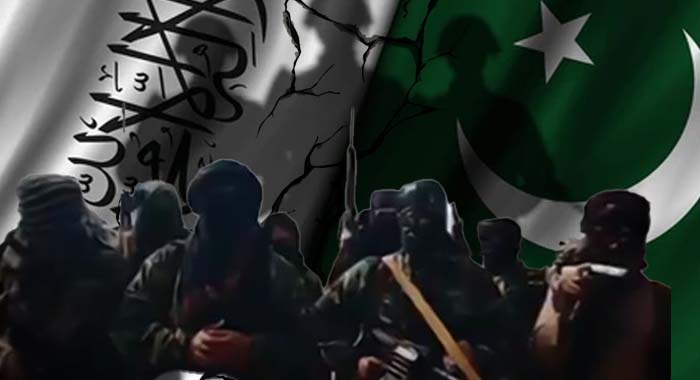The latest round of talks between Pakistan and Afghanistan in Istanbul has once again concluded without any breakthrough, reflecting the persistent deadlock that has marked previous engagements between the two neighboring countries despite continued diplomatic efforts.
Federal Minister for Information and Broadcasting Attaullah Tarar confirmed that negotiations between Pakistan and the Afghan Taliban government remain inconclusive. He said that while Pakistan appreciated the mediation efforts of Turkiye and Qatar, Islamabad stood firm on its principled stance that the responsibility to curb cross-border terrorism rests squarely on the Afghan authorities.
In a statement on social media platform X, the minister said Pakistan’s position is consistent with international norms, emphasizing that the Afghan Taliban have failed to fulfill their regional and bilateral obligations under the 2021 Doha Agreement. “Pakistan maintains goodwill toward the people of Afghanistan and wishes for their peaceful future, but it cannot support any actions by the Taliban regime that undermine the interests of the Afghan people or neighboring states,” he said, adding that Pakistan will continue to take all necessary steps to protect its people and sovereignty.
During a weekly press briefing, Foreign Office Spokesperson Tahir Andrabi confirmed that the Istanbul talks are being held under the supervision of mediators and expressed hope for a constructive outcome, reiterating that “the safety and security of Pakistani citizens will be ensured at all costs.”
He said the Pakistani delegation, led by National Security Adviser Asim Malik and comprising senior Foreign Office officials, presented evidence-based demands related to terrorist groups operating from Afghan soil. The spokesperson noted that while discussions are ongoing, Pakistan expects the Taliban to prevent their territory from being used against it.
Responding to recent border incidents, Andrabi rejected the Taliban’s claims regarding the Chaman firing incident, clarifying that the firing was initiated from the Afghan side and that Pakistan’s security forces responded responsibly. “Such incidents lead to border closures,” he warned, adding that future decisions regarding border management would depend on the evolving security situation.
Analysts familiar with Afghan affairs believe that the Taliban are using prolonged negotiations as a tactic to buy time, taking advantage of the ceasefire to consolidate their internal position. Experts argue that mediating countries such as Turkiye and Qatar should adopt a more assertive stance to pressure the Taliban into fulfilling their commitments.
Observers have also noted growing concerns in Islamabad over Afghanistan’s deepening engagement with India, which continues to invest in Afghan projects a development seen as strategically unfavorable for Pakistan.
Under the Doha Agreement, the Taliban had pledged not to allow Afghan territory to be used against any other country, including Pakistan, and to take decisive action against terrorist groups such as ISIS-K and the Tehreek-e-Taliban Pakistan (TTP). However, officials maintain that these commitments remain unfulfilled.
Pakistani authorities have consistently raised concerns that TTP leadership continues to operate openly within Afghanistan and that militant training camps remain active across the border. Despite Islamabad’s repeated requests, the Taliban have neither acted against TTP elements nor handed over wanted terrorists to Pakistan.
Sources familiar with the Istanbul negotiations confirmed that Pakistan once again pressed for a written commitment from the Taliban leadership a proposal reportedly resisted by the Afghan side, revealing internal divisions and limited authority of the Taliban’s negotiation team. Officials observed that the delegation often seeks direct approval from Kabul or Kandahar, indicating that it lacks the mandate to take binding decisions.
Security observers further believe that the Taliban do not exercise full control across Afghanistan, where multiple militant factions operate semi-independently. “While the Taliban delegation talks of peace in Istanbul, militant groups simultaneously carry out cross-border attacks,” one expert noted.
Pakistan, as an organized state, has abided by ceasefire understandings, but terrorist elements operating from Afghan soil are not bound by any such commitments. “This asymmetry is the main cause of Pakistan’s security concerns,” the expert added.
Analysts stress that the Taliban’s unwillingness to admit their inability to fully control these groups has hindered progress. “Acknowledging the problem is the first step toward cooperation,” a regional security expert said, suggesting that joint counterterrorism operations and intelligence sharing could help restore regional stability.
The continued unrest and unrestrained movement of terrorist networks within Afghanistan, experts warn, threaten not only Pakistan and neighboring countries but also Afghanistan’s own peace and stability. They emphasize that sustainable development in Afghanistan is impossible without internal security and international recognition of its government.
At present, the Taliban regime lacks formal recognition from the international community. The few countries maintaining limited diplomatic engagement do so largely for strategic and economic reasons rather than to promote Afghan peace and prosperity.
Experts argue that for Afghanistan to achieve lasting stability and economic progress, it must cultivate positive relations with its neighbors, especially Pakistan, through responsible action and mutual cooperation. Afghanistan’s trade routes, economic access, and future prosperity depend largely on peaceful relations and regional integration.
The statement concluded that the Taliban’s adherence to the Doha Agreement and visible action against terrorist groups would not only build regional trust but also open the path for Afghanistan’s global engagement and development.





